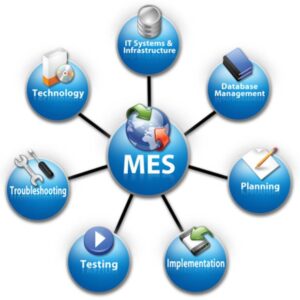
4 New Updates In PMBOK 7 Edition That Are Sure to Make Project Management Easier
One of the most crucial tools for PMP exam preparation is the PMI PMBOK. The majority of PMP training companies create study guides and other resources based on the material found in the PMBOK 7.
The PMBOK 7th edition will therefore serve as the reference for PMI’s PMP and CAPM certification tracks, and training companies will update their PMP exam preparation materials in light of this change.
People have been curious about what changes the PMP standard guideline will undergo, when it will be released, and what impact these changes will have on the Project Management Professional (PMP) certification exam ever since the PMI announced that it will be releasing a significantly revised 7th edition of its reference manual, the Project Management Body of Knowledge (PMBOK).
Why is the PMBOK changing?
The PMBOK is subject to updates every three to five years to maintain its status as a user manual and resource in light of the quick development of the project management practice field. This is because project management dynamics, frameworks, and trends are constantly changing.
Using focus groups to get feedback on what practitioners thought of the PMBOK Guide 6th edition, it was discovered that despite being a well-acclaimed project management reference, the book was viewed as being dry, difficult to understand, and difficult to use in practical situations.
The Project Management Body of Knowledge was found to have been out of date and out of sync with practice due to a concentration on the predictive way of work that was overemphasized, according to focus group comments.
What are the changes in PMP?
The regulatory body for PMP certification, the PMI (Project Management Institute), has chosen to launch PMP 7th Edition by updating the existing PMP syllabus.
Hold off if you intend to take the PMI PMP 7th edition test this year; you should be aware of the information and changes this new edition will bring.
Briefly stated, the strategy would be centered on concepts rather than procedures, which is the summary of the 7th Edition. Furthermore, it will be breezier than the existing version.
Why did changes need to be made?
A project manager will need to use a variety of techniques, methods, and approaches when working on various projects to get the greatest results in the allotted amount of time. Limiting the approaches will also slow the project’s expansion.
Project managers employ the Practitioner, Agile, Waterfall, and Hybrid methodologies. One project need not always prefer one strategy over another. As a result, a project should be managed using a variety of ideas rather than just one procedure.
Process-based vs. Principle-Based Approach
The guide was presented as knowledge areas in earlier PMBOKs. These topics covered a range of procedures, equipment, materials, inputs, and methods. In contrast, these processes won’t be present in the PMBOK 7th edition.
In contrast to the new edition of PMBOK, which will place more emphasis on results, the present and earlier editions of PMBOK were more concerned with deliverables for changing project dynamics.
The traditional project management approach, or process-based management, will continue to be used. The old approach still has merit, and many businesses still use it to complete projects. However, the new principle-based strategy will produce better results by benefiting the company and its stakeholders.
Factors affecting the changes to PMBOK7
One needs persuasive arguments that support the need for the changes to bring about a change in the status quo. The PMBOK was last modified in 2017, and little has changed regarding the format since then. With the release of PMBOK7, however, a significant alteration in the PMBOK will be seen this year.
Let’s take a quick look at the key factors that have contributed to this transformation.
1. Value Delivery System
The PMBOK 7th Edition will incorporate a value delivery system, which is a strategy that will systematically describe the goals, objectives, and missions chosen by a firm as the foundation for future investments and initiatives. The project delivery must meet its pre-set objectives for the portfolios’ goals to be met.
2. Principles for Project Delivery
The concepts on which the “what” and “why” parts of project delivery will be discussed will serve as the foundation for the PMBOK 7th Edition. Although they are not prescriptive, the fundamental principles that are part of the project delivery describe the standards and fundamental truths.
Principles Of Project Delivery:
-
Team:Fostering an environment of respect and accountability at work
-
Stewardship: Being accountable for obligations
-
Tailoring: It will base its decision on the requirements’ context.
-
Value:Emphasizing basic principles
-
Opportunities and Threats:It will aid in tackling the associated opportunities and threats.
-
Adaptability & Resilience: Being flexible and strong
-
Change Management:Make adjustments to achieve better outcomes.
-
Complexity: Using knowledge and expertise to address the complexity.
-
Stakeholders: Engaging potential clients by understanding their needs and interests.
-
Leadership: Motivate, teach, learn and grow
-
Holistic Thinking: Recognize and respond to systems interactions
-
Value: IT will focus on the values
-
Quality: Build quality through process and results
Conclusion
The seventh edition of PMBOK switches from a process-oriented to an outcome-oriented methodology. It expands on the earlier manual. The updated PMBOK Guide’s overall objective is to make the information more accessible and applicable to project managers that utilize agile, hybrid, and predictive methodologies.
In this version, existing tools and procedures are transformed into Models, Methods, and Artifacts. In addition to deliverables, the new edition emphasizes project results and value delivery.
The 7th version of the PMBOK Guide was released by PMI to address new technology, fresh perspectives, swift market developments, etc. It is in keeping with the environment of today to remain relevant, satisfy client expectations, and be proactive, innovative, and quick.
Author: Axiswebart team has 5+ years of experience in writing content on Project Management topics and along with different publications. Also, they are delivering good write-ups on various other projects too.



